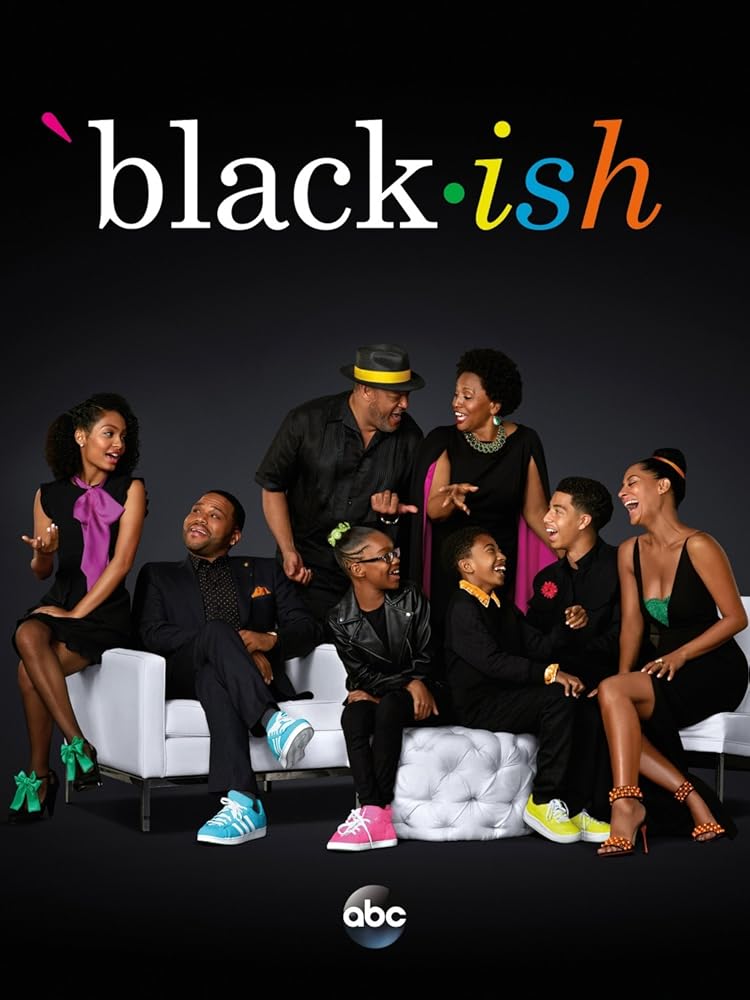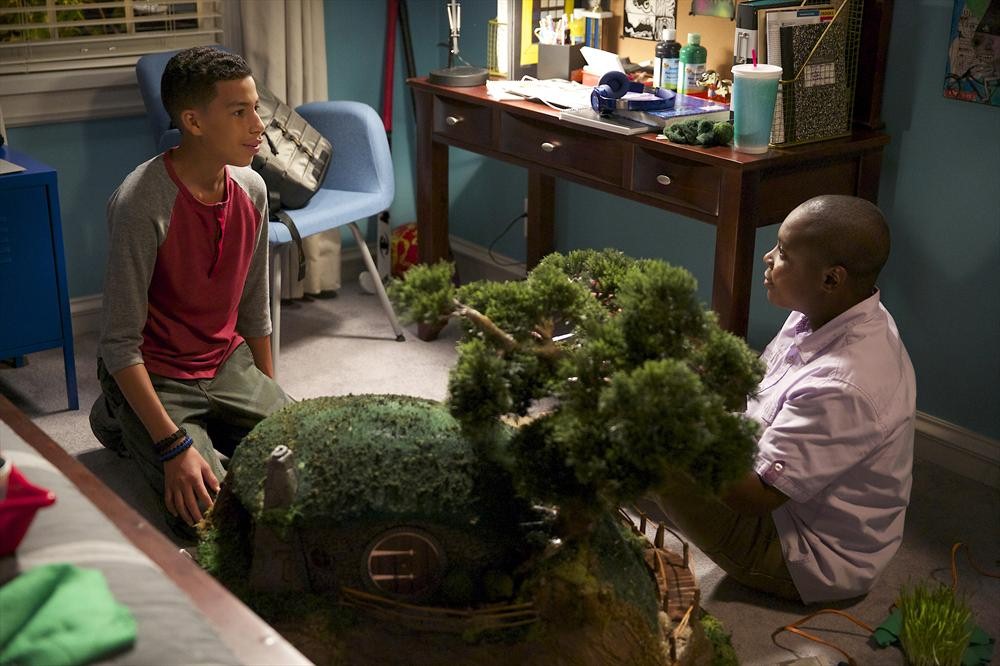'Pilot', 'The Talk', and 'The Nod'
Genre: Comedy
Family man Andre Johnson struggles to define his family's cultural identity as they are the only black family living in a middle-class neighbourhood.
Black-ish is an American comedy from the network ABC, now streamed through Amazon Prime. It was created by Kenya Barris, and stars Anthony Anderson as Andre 'Dre' Johnson. It is currently on its fourth season, with 96 episodes airing since 2014.
Analysis:
Hegemony
An ideology is the beliefs that are presented through a show to its audience, with a dominant ideology being known as a hegemony, the belief most commonly held by people who share a cultural identity or society.
For example, in Black-ish the hegemony at first in the pilot is that black people are now seen as being 'urban', reflected through the culture of hip-hop music and basketball. This is shown by Dre's job promotion in the pilot to Senior Vice President of the urban division within the company he works for, as well as in the third episode 'The Nod' when he takes his son to the community centre so he make more black friends by playing basketball.
However, the show actively counters this hegemony as not being representative of black culture.
For example, in 'The Nod', Dre takes his son to the community centre after discovering he does not nod to his fellow black classmates at school and has no friends. However, he is unable to make friends at the community centre as he is not a good basketball player. This leads Dre to invite round his friend's son because he is black, but this is not why the two boys become friends. Instead they bond over their common interest in 'The Hobbit', which leads Dre to realise his son has plenty of friends that are classed as 'nerds' who he nods to at school.
Therefore the hegemony in Black-ish is inclusion and diversity, as it is shown that it doesn't matter what race, class, or gender characters are, but that they should be included and accepted for who they are and what they stand for.
Reception Theory and Pluralism
Black-ish represents pluralism as it allows several groups to exist together in one space. For example, as the viewer I am of a white, working-class background, which is different to that of the characters' black, upper middle-class background in the show. However, I am still able to relate to them and enjoy the show because of how I take my own interpretation out of the show and not just what the creators put in.
How this show is written as a comedy may affect my interpretation though, because of how the comedic stories create empathy from how Dre's children do not always understand his struggle for cultural identity. The creators are still able to mediate what type of interpretations can be taken from the show, although my own interpretation is affected by my background.
Review:
What led me to begin watching this show is that I had already seen and enjoyed other ABC shows such as Castle, Once Upon A Time, and The Mayor. I found that Black-ish was very similar to The Mayor both of them being sitcoms centred around black male leads with a diverse range of supporting characters. However, whereas The Mayor promotes black as urban, I preferred that Black-ish promoted diversity and inclusion instead. This made the characters much more relatable as they were rounded and had complicated needs and desires, such as Dre's wife, Rainbow, wanting at least one of their children to succeed in a high end career as she and Dre have done. I think that because of its values of inclusion this show appeals to a wider audience, but does not sacrifice its cultural identity, which is important as it creates a new hegemony in society, rather than promoting old stereotyped ones which could now be said to be outdated. The only thing I didn't like about this show is that the storylines are contained within each episode so are very short. Therefore, although I would watch more of this show, I would be interested to see if any of the plot elements other than Dre's job carried over into more episodes.


Comments
Post a Comment